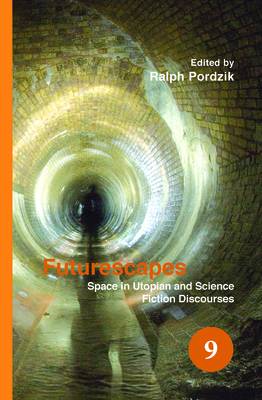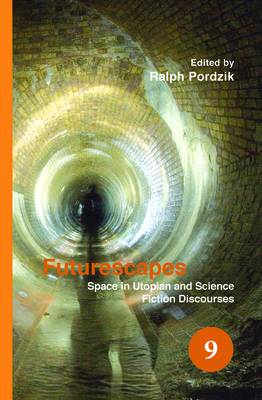
- Afhalen na 1 uur in een winkel met voorraad
- Gratis thuislevering in België vanaf € 30
- Ruim aanbod met 7 miljoen producten
- Afhalen na 1 uur in een winkel met voorraad
- Gratis thuislevering in België vanaf € 30
- Ruim aanbod met 7 miljoen producten
Zoeken
Futurescapes
Space in Utopian and Science Fiction Discourses
€ 181,95
+ 181 punten
Omschrijving
This book testifies to the growing interest in the many spaces of utopia. It intends to 'map out' on utopian and science-fiction discourses some of the new and revisionist models of spatial analysis applied in Literary and Cultural Studies in recent years. The aim of the volume is to side-step the established generic binary of utopia and dystopia or science fiction and thus to open the analysis of utopian literature to new lines of inquiry. The essays collected here propose to think of utopias not so much as fictional texts about future change and transformation but as vital elements in a cultural process through which social, spatial and subjective identities are formed. Utopias can thus be read as textual systems implying a distinct spatial and temporal dimension; as 'spatial practices' that tend to naturalize a cultural and social construction - that of the 'good life', the radically improved welfare state, the Christian paradise, the counter-society, etc. - and make that representation operational by interpellating their readers in some determinate relation to their givenness as sites of political and individual improvement. This volume is of interest for all scholars and students of literature who wish to explore the ways in which utopias of the past and recent present have circulated as media of cultural exchange and homogenization, as sites of cultural and linguistic appropriation and as foci for the spatial formation of national and regional identities in the English-speaking world.
Specificaties
Betrokkenen
- Uitgeverij:
Inhoud
- Aantal bladzijden:
- 368
- Taal:
- Engels
- Reeks:
- Reeksnummer:
- nr. 9
Eigenschappen
- Productcode (EAN):
- 9789042026025
- Verschijningsdatum:
- 1/01/2009
- Uitvoering:
- Hardcover
- Formaat:
- Genaaid
- Afmetingen:
- 155 mm x 235 mm
- Gewicht:
- 734 g

Alleen bij Standaard Boekhandel
+ 181 punten op je klantenkaart van Standaard Boekhandel
Beoordelingen
We publiceren alleen reviews die voldoen aan de voorwaarden voor reviews. Bekijk onze voorwaarden voor reviews.







